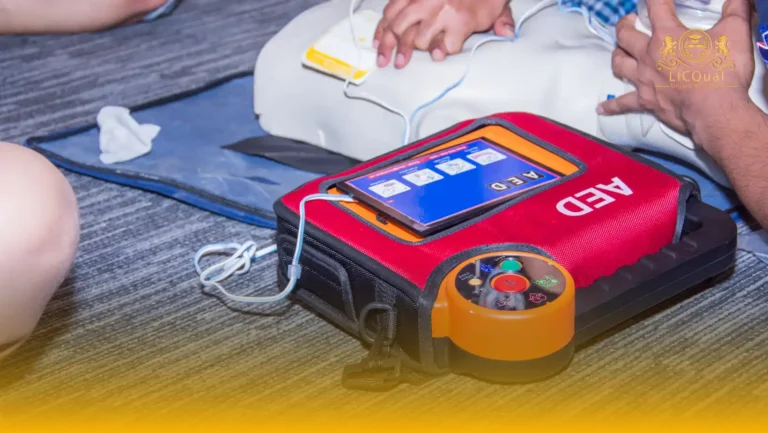The LICQual Level 3 Certificate in Fundamentals of OCTAVE Security Risk Management Framework is designed for professionals who are ready to take their expertise in security risk management to the next level. As organizations face a constantly evolving landscape of cyber threats and vulnerabilities, skilled professionals who can effectively assess, manage, and mitigate these risks are in high demand.
This advanced certificate equips you with the knowledge and practical skills needed to master the OCTAVE (Operationally Critical Threat, Asset, and Vulnerability Evaluation) methodology. Whether you’re already working in cybersecurity or looking to deepen your risk management expertise, this course will help you develop a robust framework to secure your organization’s critical assets against potential threats.
The LICQual Level 3 Certificate in Fundamentals of OCTAVE Security Risk Management Framework offers an in-depth understanding of the OCTAVE framework, one of the most respected methodologies in security risk management. This course provides a thorough exploration of the essential principles of risk identification, asset evaluation, threat assessment, and risk mitigation strategies. You will learn how to apply the OCTAVE framework to real-world scenarios, identifying and addressing risks that can impact both information technology systems and business operations.
With a focus on advanced techniques for risk management, the course will teach you how to systematically assess vulnerabilities, implement security controls, and develop comprehensive risk mitigation plans tailored to your organization’s needs. By the end of the course, you will have the confidence and knowledge to lead risk management initiatives, ensuring that your organization can effectively navigate the complex security challenges of today’s digital environment.
This qualification is perfect for those looking to advance their careers in cybersecurity, risk management, and IT security, offering a strategic approach to protecting your organization from evolving threats. With this certification, you will gain the skills necessary to drive security initiatives and improve overall risk management practices within your organization.
Course Overview
Qualification Title
LICQual Level 3 Certificate in Fundamentals of OCTAVE Security Risk Management Framework
Total Units
6
Total Credits
24
GLH
120
Qualification #
LICQ2200315
Qualification Specification
To enrol in the LICQual Level 3 Certificate in Fundamentals of OCTAVE Security Risk Management Framework, candidates must meet the following entry requirements:
- Educational Requirements:Applicants should have a foundational understanding of security risk management concepts. It is recommended that candidates have completed the LICQual Level 2 Certificate in OCTAVE Security Risk Management or possess equivalent knowledge. A minimum of a high school diploma or equivalent is required.
- Experience: Prior professional experience in risk management, cybersecurity, or IT is beneficial but not mandatory. This course is suited for individuals with a basic understanding of risk assessment who want to deepen their knowledge of advanced security frameworks. Experience in roles like IT security analyst or risk manager is advantageous.
- English Language Proficiency: Candidates should have a proficiency level of CEFR Level B2 (Upper Intermediate) or equivalent in English. This ensures learners can comprehend course materials, engage in discussions, and complete assignments effectively. Strong English communication and writing skills will aid in successful course completion.
- Age Requirement: Candidates must be at least 18 years of age at the time of enrolment.
|
Qualification# |
Unit Title |
Credits |
GLH |
|---|---|---|---|
|
LICQ2200315-1 |
Advanced Risk Assessment Methodologies |
4 |
20 |
|
LICQ2200315-2 |
Designing Risk Management Frameworks |
4 |
20 |
|
LICQ2200315-3 |
Security Control and Threat Modeling |
4 |
20 |
|
LICQ2200315-4 |
Risk Assessment Documentation and Reporting |
4 |
20 |
|
LICQ2200315-5 |
Advanced Risk Mitigation Strategies |
4 |
20 |
|
LICQ2200315-6 |
Continuous Improvement in Risk Management |
4 |
20 |
By the end of this course, learners will be able to:
Advanced Risk Assessment Methodologies
- Apply advanced risk assessment techniques to evaluate complex security risks.
- Analyze and select appropriate assessment methodologies based on the organization’s specific risk landscape.
- Use both qualitative and quantitative approaches to assess the likelihood and impact of various security threats.
Designing Risk Management Frameworks
- Design and implement comprehensive risk management frameworks that address specific organizational needs.
- Integrate risk assessment findings into the development of organizational security strategies.
- Ensure the framework aligns with industry standards and compliance requirements for managing security risks.
Security Control and Threat Modeling
- Identify, design, and implement effective security controls to mitigate identified risks.
- Apply advanced threat modeling techniques to analyze vulnerabilities and assess the impact of potential threats.
- Develop security measures that align with an organization’s risk profile and operational requirements.
Risk Assessment Documentation and Reporting
- Produce clear, concise, and accurate documentation of risk assessments, methodologies, and findings.
- Develop detailed reports that communicate risk assessments and mitigation strategies to stakeholders.
- Ensure that documentation aligns with regulatory and organizational reporting standards.
Advanced Risk Mitigation Strategies
- Develop and apply advanced strategies to mitigate identified risks, including risk transfer, acceptance, and avoidance.
- Evaluate the effectiveness of mitigation strategies and refine them based on evolving threats and organizational needs.
- Implement proactive risk mitigation measures to reduce the likelihood and impact of future risks.
Continuous Improvement in Risk Management
- Apply continuous improvement processes to enhance risk management practices over time.
- Monitor and assess the performance of security controls and risk management frameworks.
- Implement iterative adjustments and improvements to adapt to new threats and organizational changes, ensuring long-term security resilience.
This diploma is ideal for:
- Professionals who have completed the LICQual Level 2 Certificate in OCTAVE Security Risk Management or possess equivalent knowledge and want to advance their expertise.
- Risk management, IT security, and cybersecurity professionals seeking to deepen their understanding of advanced risk assessment and mitigation strategies.
- Individuals responsible for designing, implementing, and monitoring security frameworks within their organizations.
- Managers, team leaders, and consultants looking to refine their skills in risk management to effectively lead security initiatives and safeguard critical assets.
- Professionals in compliance, auditing, or governance roles who want to integrate advanced risk management practices into their organizational policies.
- Anyone aiming to enhance their qualifications and career prospects in the rapidly growing field of security risk management.
- Individuals looking to develop the skills needed to create and manage comprehensive risk management frameworks and drive continuous improvement in risk practices.
Assessment and Verification
All units within this qualification are subject to internal assessment by the approved centre and external verification by LICQual. The qualification follows a criterion-referenced assessment approach, ensuring that learners meet all specified learning outcomes.
To achieve a ‘Pass’ in any unit, learners must provide valid, sufficient, and authentic evidence demonstrating their attainment of all learning outcomes and compliance with the prescribed assessment criteria. The Assessor is responsible for evaluating the evidence and determining whether the learner has successfully met the required standards.
Assessors must maintain a clear and comprehensive audit trail, documenting the basis for their assessment decisions to ensure transparency, consistency, and compliance with quality assurance requirements.







